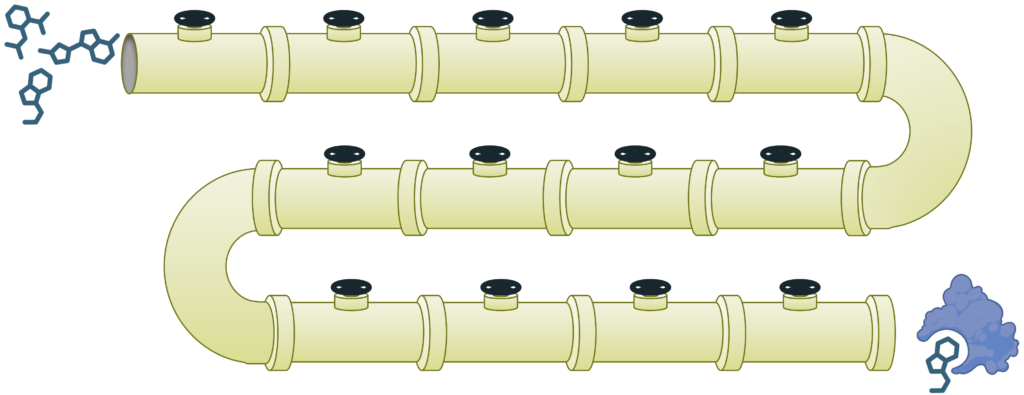CRISPR platform
We embraced the groundbreaking CRISPR technique since 2013 resulting in years of expertise.
Our research incorporates various CRISPR applications such as:
We are open to scientific collaborations, whether you seek guidance on implementing CRISPR applications or wish to collaborate on innovative projects:

Cancer drug target deconvolution pipeline
A major strategy in drug discovery is the screening of chemical compounds in cell-based assays for their capacity to establish a cell morphology or phenotype of interest.
Our lab has built a cancer drug target deconvolution pipeline that integrates ten consecutive experimental strategies, including CRIPSRres.
We rely on a network of collaborating chemists for the synthesis and delivery of new bio-active small molecules to feed into our pipeline and regularly engage in new collaborations to provide assistance in the early steps of cancer drug development.
Virus-host interactions
One of our research topics is the discovery of cellular factors that support the life cycle of viruses from various families, with a focus on understudied viruses with pandemic potential.
Using CRISPR-based screening technology, we identify host genes that facilitate virus infection. Such genes can either support virus attachment, genome uptake, viral protein translation or genome replication.
By performing in-depth mechanistic studies, we characterize the function of new factors in the viral life cycle:
Besides expanding our knowledge about virus biology, host factor identification can also yield potential new targets for therapies against viral diseases!
Cancer therapy
A key focus of our research is identifying cancer-specific vulnerabilities and understanding resistance or sensitization mechanisms to anti-cancer drugs, leveraging cutting-edge CRISPR-based screening technology. After rigorous validation of the hits across multiple cancer cell lines, we conduct in-depth mechanistic studies to elucidate the roles of newly identified factors in cancer biology and their interactions with anti-cancer therapies. Our work spans various cancer types and tumorigenic processes:
Through these multidisciplinary approaches, we aim to advance the understanding of cancer biology and develop more effective therapeutic strategies.
Nucleocytoplasmic transport
The correct transport of RNA and proteins between the nucleus and the cytoplasm, known as nucleocytoplasmic transport, is essential for maintaining the homeostasis of the eukaryotic cell. Disruptions in this process have been implicated in various diseases. Additionally, many viruses exploit this process to shuttle their RNA and/or specific viral proteins in and out of the host cell nucleus. Our research aims to unravel the roles of different nucleocytoplasmic transport (import and export) pathways in virus replication and cancer progression. We focus on the discovery, design, and development of novel compounds and strategies that interfere with nuclear import and export.
Exportin-1 (XPO1), also called chromosome region maintenance 1 protein (CRM1), is the best characterized karyopherin, responsible for exporting the largest number of different cargos from the nucleus to the cytoplasm. Deficiencies in XPO1-mediated transport are closely linked to cancer, and pathogens such as HIV and Influenza exploit this pathway for replication. We have developed a battery of assays in place to identify and study the mechanism of novel inhibitors targeting this process. Notably, we have discovered drug-like covalent small-molecule inhibitors (N-azolylacrylates) of XPO1 that were licensed to Karyopharm Therapeutics and are now globally used to treat patients with multiple myeloma or diffuse large B-cell lymphoma.